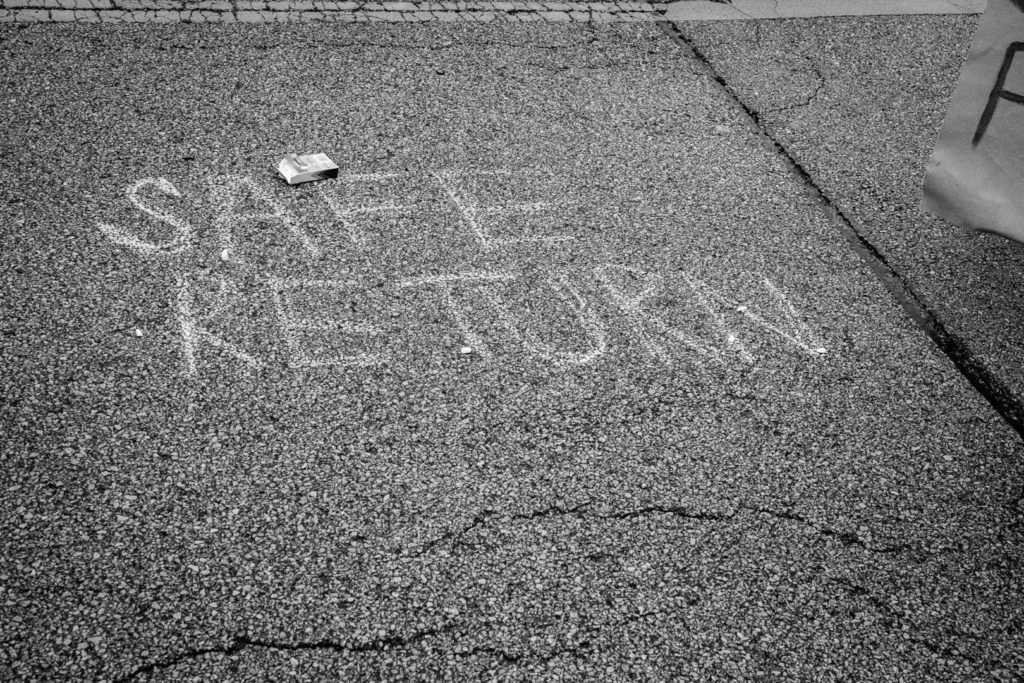After many months of teaching remotely, I was excited about the opportunity to return to in-person teaching. I was fully vaccinated, and the positivity rates were going down. However, when I looked at my roster, I was surprised to see that about half of the preschoolers at my school opted out of in-person learning. It seemed likely that I would have a full class of remote learners and spend the whole year of teaching only remotely.
I reached out to some families to see their reasons for choosing remote learning. Portia, a Chicago Public Schools employee and parent, told me that she has many reasons for not sending her son, Noah, back to school. Noah has been attending the same daycare since he was an infant and Portia didn’t want to lose his spot in case the classroom had to quarantine for 14 days sometime during the school year. Noah also has seasonal allergies and Portia knows that he will be sent home due to his runny nose. According to the district’s Sick Student Protocol, he would have to receive written documentation from a medical provider before he could return to school. Portia can’t afford to leave work to pick him up in the middle of the day to get him a COVID test.
This conversation, as well as others I had with my school community, confirmed my thoughts. The high positivity and death rates in my neighborhood, the fact that many of my families rely on grandparents for help with childcare, and the decades of mistrust in the medical system among the Black community, were contributing to the low return rates of my students.
Schools Like Mine Must Work Harder to Bring Back Families
Recently, Illinois has moved into Phase 5 of its reopening plan. The Illinois State Board of Education made it mandatory for all students, except for the medically vulnerable, to return to the classroom full time in the fall. Schools like mine will have to work a lot harder to make families feel comfortable in returning.
While CPS has offered district-wide information sessions, those are too big, and families don’t feel like their specific questions and concerns are being addressed. The district should create a comprehensive community outreach program to educate families. Chicago Public Schools and the Department of Public Health should make efforts to talk to families all throughout the summer, focused on communities with low in-person return rates for the fourth quarter. The outreach should include community visits and in-person and virtual meetings right after school hours to discuss safety protocols and disseminate updated research on the spread of COVID and on vaccine effectiveness.
These meetings should be led by trusted members of the school community, such as administrators or teachers, alongside health professionals. These smaller, more intimate settings would allow families to be comfortable and open to listening to the district’s plan, and to feel safe enough to ask questions. The school-based meetings could also be a place to go over health protocols and school-specific details, such as where the students would eat lunch and the results of the “Ventilation and Indoor Air Quality Assessment” conducted last fall. In addition to schools, these meetings could be held at local churches, community centers, neighborhood parks, and libraries, to reach families who still feel unsure about being in a school.
I know that nothing can compare to the hands-on experiences children thrive in. I was seeing academic gains through the screen, but there is so much more I can do with the children in front of me. When students come back in person in the fall, I will be able to better teach social-emotional skills and provide sensory learning opportunities that young children need. But first, I need to get my students back into the classroom. We need to work with families to remove the barriers of doubt and misinformation. If CPS does not effectively engage families, the consequences will be dire, furthering the deep mistrust between Chicago Public Schools and Black and Brown families. However, if we approach this moment correctly, this can be a time of healing and reconciliation that will ultimately benefit children, their families, and our entire community.
